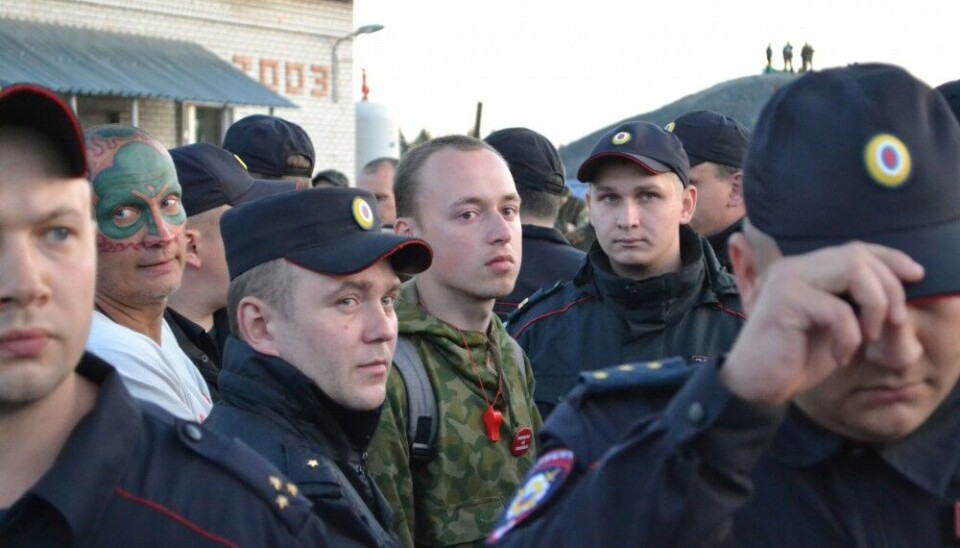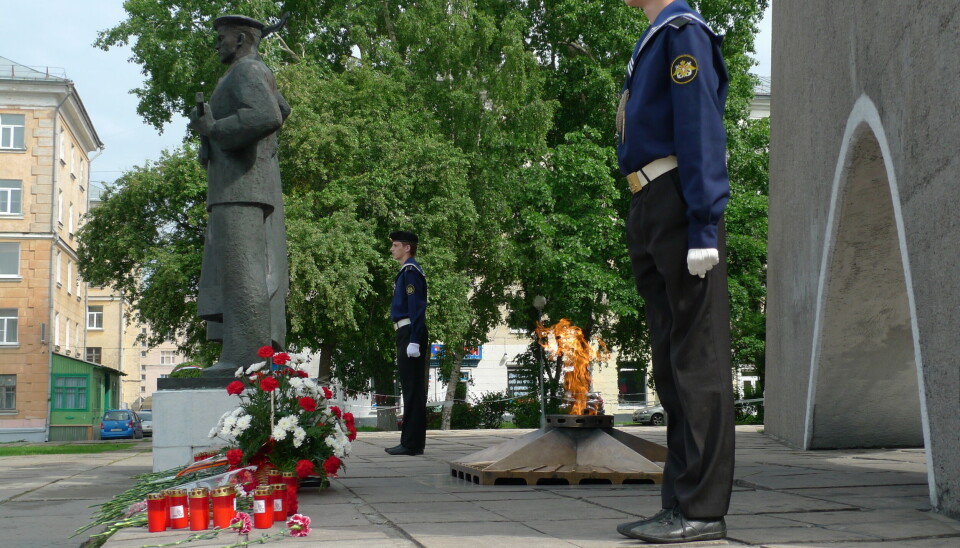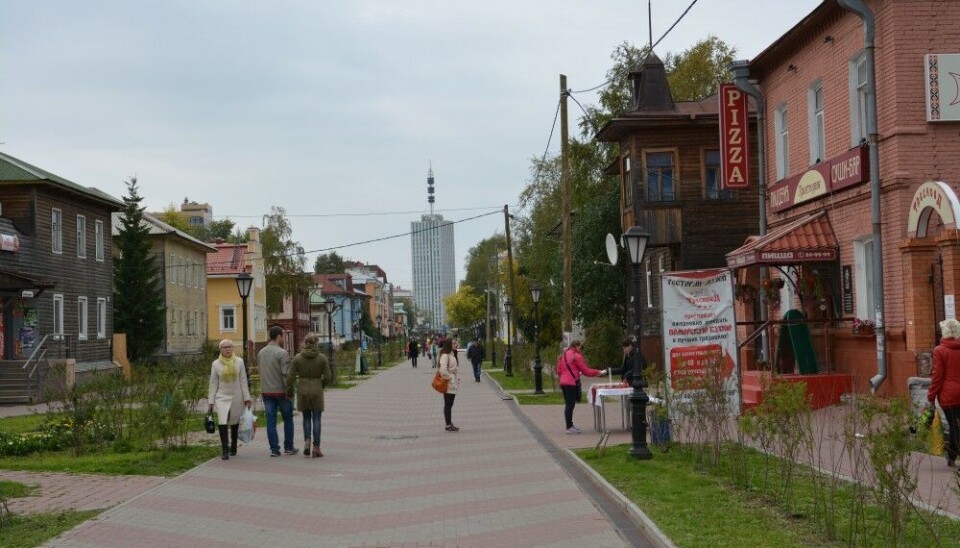
Arkhangelsk tops list of harassed environmental defenders
Harassment, fines, and prosecutions are just some of the tactics authorities use across Russia to silence eco-activists. Whistleblower Aleksandr Peskov was detained for two days for filming at Shiyes, a proposed massive landfill project in Arkhangelsk region for trash from Moscow.
Aleksandr Peskov is one of hundreds of brave citizens who advocate for better environmental standards in Russia.
Standing up, however, is subject to heavy reprisals as repressive authorities continue to crack down on anti-war voices.
He says to the Barents Observer that eco-activists are often persecuted for obvious reasons.
“Authorities see us as a threat. Many environmental problems in Russia are caused by the actions or inactions of the authorities, and the officials are well aware of this.”
A new report by the Ecological Crisis Group details how law enforcement agencies are targeting environmentalists with Russia’s new anti-war legislation. Eco-activists are targeted for allegedly discrediting the armed forces or spreading fake news about what Moscow insists to name a ‘Special Military Operation’ - the War on Ukraine.
The Ecological Crisis Group is created jointly by Russian Social Ecological Union and the All-Russian civil environmental movement “We live here!”.
According to Peskov, there are many in Arkhangelsk region that disagree with the war. But, as he says: “Law enforcers are interested, as a rule, in Shiyes activists. I assume that this is a kind of revenge for that victory over the construction of the landfill.”
After years of protests, likely the biggest eco-demonstration in post-Soviet Russia, a court ruled in 2020 to demolish the controversial landfill, marking a major victory for regional activists who opposed its construction.
Arkhangelsk is on top of the 19 regions in Russia studied to find out how authorities are using anti-war legislation to put pressure on environmentalists. Also neighboring Komi Republic stands out in the number of cases.
16 eco-activists in Arkhangelsk and eight in Komi have got administrative fines for “voicing disagreement with the special military operation (sic.),” the overview shows.
The list also includes Shiyes activists that have left Russia after being pressured by security forces threatening to start criminal cases against them.
The total amount of administrative fines given to environmental defenders 63 environmentalists in Russia criticizing the war on Ukraine is 1,833,000 rubles. The anti-war legislation was introduced in March 2022.
The 16 persons in Arkhangelsk include four criminal cases, two criminal convictions with fines of 260,000 rubles, five detentions, and 22 administrative offenses with fines amounting to 601,000 rubles, the compiled information by Ecological Crisis Group notes.
Ignorance makes people question more
Vitaly Servetnik is coordinator of the Russian Social Ecological Union’s program to support environmental activists. He says in a chat with the Barents Observer that people’s concern about nature and health often makes them start questioning more, for example, the logic of the war.
“Faced with ignorance from local authorities they start to question who the whole system works for. Then they see the broader picture, the systemic problems, and you cannot stop it.”
It was environmental concerns that triggered some of the first public protests against the rulers in the Kremlin in the late Soviet days. Questions about the Chernobyl accident, Lake Baikal pollution, and unhealthy factory smog were some non-political keywords that became a headache for the leaders in Moscow as more and more people took benefit of Glasnost.
Servetnik does not believe the uprising against authorities caused by environmental problems in the late 80ties, and early 90ties is the main reason why today’s regime is cracking down on eco-activists.
“Current Russian authorities are people combining economic and political power,” says Servetnik.
“They clearly see environmental defenders as those who challenge their private profit. That differs the current elite from the Soviet clerks.”

All over Arkhangelsk Oblast
Meanwhile, police forces in Arkhangelsk continue to harass local environmentalists.
“Anyone can receive a large prison sentence for talking about the actions of the Russian army in Ukraine and spreading truthful information about the war,” says Aleksandr Peskov.
In Arkhangelsk, he says, the courts have so far limited themselves to issuing fines, not prison sentences. Peskov adds that many activists also are banned from using means of communication (internet, phones etc.) as long as investigations go on. That can take from six to 10 months. “In modern life, this actually disconnects people from normal life for a long time,” Peskov elaborates.
Most of the cases are from the city of Arkhangelsk, but examples of people being harassed by law enforcement also includes other cities in the Oblast; in Velsk, Plesetsk, Kholmogorsky district, Kotlas, Severodvinsk and Kargopol.

Eco-groups kicked out
Russian authorities have over the last few months put a final end to the country’s non-governmental environmental groups.
In April, the Bellona Foundation was declared an “Undesirable Organization” by the Prosecutor General’s Office in Moscow, claiming the environmental group’s activities were aimed at undermining Russia’s economy and posed a threat to the constitutional order and security. Bellona was one of many eco-groups working to document the consequences of the infamous 1994 oil spill in Usinsk.
In mid-May, Greenpeace got the same “Undesirable” branding as Bellona. For Greenpeace, the Procurator General added “…. Greenpeace’s environmental activities are actually accompanied by an active promotion of a political position, attempts to interfere in the internal affairs of the state and are aimed at undermining its economic foundations.”
The last environmental organization to be branded “Undesirable” was WWF in the last week of June. According to the Russian government authority, the WWF has a political agenda aimed at hindering Russian industrial development in the Arctic.
“The so-called environmental and eco-educational activity that is conducted under the auspices of British national N. Isdell is used by the WWF as a cover for developing projects that pose a threat to [our] economic security,” a statement from the Prosecutor’s office said.
You can help us…
…. we hope you enjoyed reading this article. Unlike many others, the Barents Observer has no paywall. We want to keep our journalism open to everyone, including to our Russian readers. The Barents Observer is a journalist-owned non-profit newspaper. It takes a lot of hard work and money to produce. But, we strongly believe our bilingual reporting makes a difference in the north. We therefore got a small favor to ask; make a contribution to our work.














